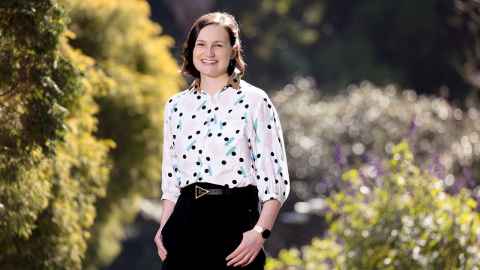Maxine Shanks
Maxine is a PhD student in Exercise, Sport and Rehabilitation Sciences, investigating stroke rehabilitation.

“My PhD work is investigating a novel neurophysiological framework for assessing hand and arm impairment after stroke. The framework may increase prognostic accuracy about hand and arm movement recovery and outcome.
“This work is important because movement deficits are the most common impairment after stroke, and approximately 50% of people with stroke experiencing hand and arm weakness will not recover full function of their limb.
“Predicting patient outcomes early after stroke helps provide realistic information to patients and their whānau, set attainable rehabilitation goals, guide therapists’ treatment plans and increase the efficiency of stroke rehabilitation services.
“Having worked as a physiotherapist for a couple of years, I knew my area of interest was neurorehabilitation, particularly stroke research.
“I believe having a sound understanding of what has happened/is happening to your patient at a biological level enables you to effectively treat them. I wanted to gain a deeper understanding of these aspects to make me a better physiotherapist.
“The University of Auckland team, led by Professors Winston Byblow and Cathy Stinear, are world leaders in stroke recovery research.
“There is a great relationship with Te Whatu Ora Te Toka Tumai Auckland, where clinical research is embedded into the stroke unit. This creates a truly unique environment to work and study. I could not think of a better place to study or better mentors to guide me.
I really enjoy the mix of science and patient interaction. It keeps both the scientist and physiotherapist in me happy!
“I received a University of Auckland Doctoral Scholarship. Previously I was working full time and the scholarship allowed me to make the switch from full time physiotherapist to full time student.
“Ultimately, I want the best of both worlds and continue to be involved in clinical research and practice. I believe implementation is essential. If we know things work in research, we need to translate them into the clinical environment to improve practice and overall standard of care.”
We're always looking for stories to share from our passionate Science students.
If you have a story, we'd love to hear from you. Email science-web@auckland.ac.nz.